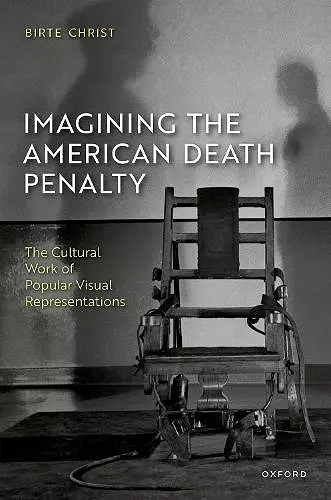Imagining the American Death Penalty
The Cultural Work of Popular Visual Representations
Format:Hardback
Publisher:Oxford University Press
Publishing:31st May '25
£88.00
This title is due to be published on 31st May, and will be despatched as soon as possible.

Imagining the American Death Penalty traces the US American cultural imaginary of capital punishment through popular visual representations from the 1890s to the twenty-first century. The book focuses on three generic and historical clusters of representations: early film from the 1890s through Intolerance (1916), crime film noir of the 1950s and1960s, and legal TV series from the 1990s through the early 2000s. The book makes two central arguments. First, it demonstrates that an increased concern with the death penalty in popular media does not mean that these texts promote an abolitionist agenda: their cultural work is ambiguous at best. This ambiguity is always contingent upon both the affordances of the particular genre and medium in question and on political-legal discursive context. The book explores both in detail. Early film is enchanted with its own representational possibilities due to the progress of technology and, in analogy, with the progress in execution technique, specifically the electric chair. In film noir, genre conventions and the legal back-and-forth before and after Furman predicate ambiguity. In legal TV series, the genre's ensemble casts and its focus on conversational exchange invite open debate. The second argument is that popular visual representations consistently whitewash the death penalty. The book demonstrates that this is the case because the most common narrative around executions in film and TV is to cast the condemned man as a hero who defies the violence of the state, gains dignity by accepting his fate and faults, and in some ways triumphs over death. The American imaginary, until very recently, did or could not imagine Black men to possess that measure of agency that it attributed to its white heroes.
ISBN: 9780198935087
Dimensions: unknown
Weight: unknown
336 pages